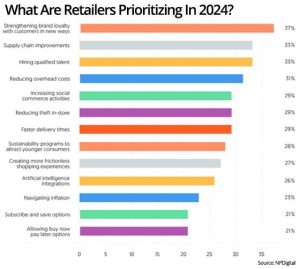A successful brand video benefits both your brand and your video agency. It’s a powerful medium, but it also requires a lot of work. That’s why your relationship with your video agency is so important. It starts with the right partner. (If you’re on the hunt for an agency, see our tips to choose a video agency.) But once you have that partner, it’s important to collaborate and communicate at every stage to create the best possible product.
How to Work With Your Video Agency
If you’ve never worked with a video agency before (or have had a less-than-thrilling experience), here are some tips that will help your next video engagement result in a piece everyone is proud of.
1) Share your vision.
Your video agency is your creative partner, but they are likely new to your brand. Sharing your brand’s larger vision helps them get a sense of who you are and what your long-term goals are. In early conversations, share your foundational thinking, including:
- Brand vision, mission, and values
- How this project contributes to your content strategy
Even if you’re working on a one-off video, every piece of content your brand creates contributes to your larger goals and vision. This is important context that will inform your video agency’s creative approach, in terms of how they can best help deliver your story and differentiate from the competition.
2) Prepare a thorough distribution plan.
As with all content types, how you deliver your story is just as important as the story itself. Crafting your distribution strategy upfront is especially important for video because there are so many moving parts.
Video assets can constitute anything from a 15-second YouTube pre-roll ad, to a long-form documentary submitted to a film festival, to a video tailored for earned media. Understanding exactly how you intend to promote will greatly affect what you create.
Your video agency should be well-versed in content distribution channels and able to give recommendations based on your objectives. Any concepts they pitch to you should consider where the video will live, for how long, how viewers will encounter it, and what placement will cost.
Conversely, sometimes creative needs to be developed to fulfill a pre-purchased distribution plan (e.g., you’re looking to fill a 30-second ad buy). Make sure your video agency knows about details like this so they can plan for distribution channel specifics, such as audience skews, sizing specs, and call-to-action options.
3) Write great project briefs.
Oftentimes the earliest conflicts that arise in a working relationship stem from core misunderstandings about the project, which are informed by the creative brief. This document is the single source of reference for your video agency, so make sure it is airtight.
Common pitfalls in briefs:
- Too ambitious: “We’d like a 45-second educational video about multiple subjects, tailored to Millennials, Gen-Xers, and Boomers.” Make sure your goal is realistic for the project scope.
- Too vague: “We want a video that will really make our audience feel something.” The more specific you are, the stronger your story will be.
- Too much client-speak: “This video should speak to our [indecipherable acronym] audience about the value of [industry-specific term] in a [buzzword, buzzword] world.” The last thing your video agency wants is a follow-up meeting to decode a brief. Translate confusing terms for clarity.
- Too long: “In addition to this 5-page brief, here’s our employee handbook and our last 200 projects for quick reference.” This is why the early foundational conversation is important. It helps distill the high-level thinking so that the brief can get into project specifics.
A good brief clearly outlines your objective, audience, specifications, and other pertinent information in a succinct matter. The goal of the document is to provide sufficient context, background, and—above all—actionable information that will inform brainstorms.
There should be enough to inspire ideas, not to bog them down.
4) Ideate and iterate until satisfied.
A good client-video agency relationship is a healthy partnership, not a marriage on the rocks. If you aren’t happy with initial responses to a brief, don’t settle for what you’re given. (If you aren’t 100% in from the beginning, we can guarantee the project will not go well down the line.)
Both parties should be enthusiastic and engaged throughout the brainstorming process. When your video agency is pitching ideas, their excitement and interest should be tangible. If they’re half-hearted, they probably aren’t that jazzed on the ideas—and you shouldn’t be either.
Ask your agency to detail the risks of every direction they present. They’ll be able to tell you which concept will be a budget crunch due to multiple locations, which might be difficult for actors to deliver, or which might pose significant technical challenges. They’ll also fight for the ideas they really believe in, and that kind of energy will do wonders for the final creative product.
At every stage of the project, ask for more ideation or idea development if you’re just not feeling what’s coming through. When providing that feedback (see the next point), clearly articulate what is missing, what shift you’d like to see, or what additions you want.
A note: We know that with video, sometimes you just need to “see it to believe it.” But that doesn’t mean you should wait for the video to be completed before deciding if you like the concept.
There are definitely steps you can take in the concepting phase to get a clearer idea of the vision. A moodboard, third-party references, sample script copy, or storyboard frames can give you the supplemental information you might need to make a decision.
Tip: Try our brainstorm tips to get better results in your next meeting.
5) Provide actionable feedback.
Your video agency wants to create something you love, so it’s important that you’re both able to clearly communicate what isn’t working. A few tips to help you do that:
- Provide feedback via email. You may arrange a call to discuss any details, questions, or open-ended items after, but written feedback provides a clear record of your thoughts. It also gives your video agency some time to synthesize the information and discuss internally before hopping on the phone.
- Don’t always jump to a solution. Highlight the issues you see as problems, and explain why they don’t land for you. If you stop there and leave the solutions open, a great video agency will be able to present a few alternatives and engage in valuable analysis of every option’s merits and risks.
- Point to the brief. The objectives you illustrated in the briefing stage are the anchor of the project. (Again, this is why that document is so important.) Highlight where things are falling short, as it pertains to the goal.
6) Keep each other inspired.
While it is important to keep everyone on the same page at each phase, there should be some flexibility to allow for even better ideas—from both you and your agency—if and when they arise.
You should have a free and easy exchange of inspiration with your video agency, whether it’s cool voice over examples or color palettes. (We’ve had clients send over everything from a Jean-Claude Van Damme video to Bourbon packaging, and we love it.)
Some of the specific things that can help inspire the team:
- Keep a running list of video assets that your competitors (and others) are putting out. Analyze the message, tone, story, and visual executions together to note how you may imitate or differentiate.
- When you see a particularly impressive execution, ask your video agency how much they think something like that might cost. In addition to keeping their creative wheels turning, this will help you benchmark costs and measure budget expectations next time a video project comes up.
- Keep an eye out for artwork of all types that moves you. A mood, story type, or personal reaction to a piece can steer your video agency in the right direction, whether that inspiration comes in the form of a movie, sculpture, or even a building.
In addition to encouraging pro-active ideation, set up some formal infrastructure for those suggestions, as well as a process to get the appropriate stakeholders to sign off if you do decide to switch gears.
7) Confirm creative before you get to set.
The pre-production phase is when the entire shoot plan is established. Some of the magic of being on set is the unexpected or impromptu changes that elevate production or solve unforeseen problems. But, more often, a set becomes a nightmare when details have not been finalized or last-minute stakeholders start to chime in.
To ensure your video agency is making the most of your budget, thoroughly review and sign-off on everything before you start shooting. This is not just an issue of creative preference. It’s a smart economic choice. Video production is costly and relies on maximum efficiency, particularly if you have multiple deliverables.
If you have everything locked and loaded, you can condense shoots into minimal days and locations. (External payments to crew, location, etc. are typically for day rates.) The more work your video agency can commit to at once, the better deal you get.
Once on set, it’s likely too late to make changes without torpedoing your budget and schedule. If you find yourself in a situation where you must make a change, speak with your video partner producer so you understand how it might affect your schedule, shot list, and budget.
Remember that shooting is typically an irreversible stage of the video process. This makes it different from other work types. Whereas in graphic design, you can always retrace your steps and redo visuals, after a shoot wraps, what you have is all you have for post-production.
8) Consider the set to be education.
Being on set is the best. It’s one part high-stakes corporate production and one part Hollywood magic.
When you’re on set, consider it an opportunity to observe the process and learn about the ins and outs of video production. The more time you spend on set, the better you understand how an idea executes at the concept stage, where budget goes, and how each different role on set contributes to the production. If it’s your first time on set, it can be a truly illuminating experience.
You should certainly speak up if you think a fatal error is being committed, but you should really trust the people you hired. You are working with talented, dedicated professionals who do have your best interests at heart. An empowered director and DP will give you the best creative product, because it has their name on it.
If you’re unsure about something, it helps to ask the appropriate stakeholders instead of barreling in mid-shot.
Oh, and enjoy the snacks and craft services when you can. Your video agency may turn to you for an important decision or call in a compressed timeframe. You want to be fresh, positive, and well fed.
9) Don’t be afraid to talk money.
Videos typically entail a fair amount of out-of-pocket expenditures. You should feel empowered to negotiate down the cost of a video—as you would any other work product.
However, if your video agency reduces cost, make sure they are clear about what line items, crew, or other expenses might be compromised.
Often there will be concessions to production value or team experience when a budget is slashed.
10) Create a case study.
Video is a significant investment. At the end of the project, you want to be able to prove ROI to your stakeholders. Your video agency also wants to highlight your success. (If you look good, they look good.)
One of the best ways to do this is to document the process throughout. Track ideation, capture behind-the-scenes footage and photography, and measure your analytics.
You and your agency can build a great case study to show off after. This gives you both more exposure and solidifies your collaboration.
Keep Nurturing Your Relationship
While there are many practical details that can help elevate a project, the relationship with your video agency will underscore everything. Commit to being collaborative partners and nurturing your relationship to make it a successful engagement. When all goes well, we recommend beers—on your video agency of course.
The post 10 Tips to Work Effectively with Your Video Agency appeared first on Column Five.
Digital & Social Articles on Business 2 Community(48)
Report Post







